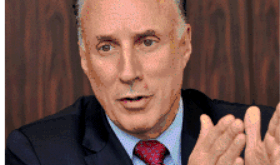The dangers of distorting free market interest rates is one of the bits of market folklore that keeps getting passed around. There is actually not a whole lot of data to defend this view; it is best viewed as faith-based reasoning. This topic is particularly interesting in the case of Japan. I am somewhat agnostic on this issue; I do not see particular risks from manipulating the yield curve in the current environment, yet I can see some plausible dangers. This article was triggered by the...
Read More »What Is Wrong with the Bank of England’s Decision Today?
The BoE’s decision to raise the Bank Rate to 0.75% is a mistake. It is a mistake comparable to those made by Alan Greenspan’s Federal Reserve in the years between 2003 and 2006. It is a mistake that must be understood in a wider context. Not just the political context – which promotes ‘monetary radicalism and fiscal conservatism’ – to quote David Cameron and George Osborne. But also in a wider monetary policy context. As the governor of the Bank pointed out recently: ‘the Bank is the only...
Read More »Zero Hedge — Bank Sector In Peril As Refi Activity Crashes Amid Rising Rates
As Black Knight writes, it looks at the – quite dramatic – effect the mortgage rate rise has had on the population of borrowers who could both likely qualify for and have interest rate incentive to refinance. It finds that the number of potential refinance candidates has tumbled to the lowest since December 2008.... To be sure, it is hardly a shock that after a decade of record low rates, the current rise in rates means a collapse in refi activity: after all anyone who could, and would,...
Read More »Jason Smith — It’s the 80s!
Interesting look at the history.Information Transfer EconomicsIt's the 80s!Jason Smith
Read More »US Rates: Real or Expectations?
By Marc Chandler Originally published on Marc to Market There is a general understanding of what happened last week. The 2.9% rise in average hourly earnings in the US reported, the fastest since 2009 spurred fears of rising inflation. The jump in US interest rates triggered equity sales and a spike in volatility, which in turn spurred the unwinding of low vol bets that had been paying off handsomely. While this consensus narrative has much to recommend itself, there is a...
Read More »US Rates: Real or Expectations?
By Marc Chandler Originally published on Marc to Market There is a general understanding of what happened last week. The 2.9% rise in average hourly earnings in the US reported, the fastest since 2009 spurred fears of rising inflation. The jump in US interest rates triggered equity sales and a spike in volatility, which in turn spurred the unwinding of low vol bets that had been paying off handsomely. While this consensus narrative has much to recommend itself, there is a...
Read More »Edward Harrison — Ray Dalio: We are already in a bond bear market right now
Ed Harrison on Ray Dalio on bonds.Credit Writedowns Ray Dalio: We are already in a bond bear market right nowEdward Harrison
Read More »Brian Romanchuk — The Highly Predictable Treasury Bond Bear Market
Brian gives a simple and accessible explanation of bond market dynamics based on his considerable experience in the field as a "quant."Bond Economics The Highly Predictable Treasury Bond Bear MarketBrian Romanchuk
Read More »Italian Election–Two Months and Counting
By Marc Chandler (originally published at Marc to Market) Germany does not have a government, though the election was more than three months ago. Spain, Portugal, and Ireland have minority government. Austria is the first government since the financial crisis to include the populist right. The EU is trying to press Visegrad group of central European countries to conform to the values of...
Read More »Will Bank of England raise interest rates in 2018?
The Financial Times asked economists the following: How far will the Bank of England raise interest rates next year? Do you think they should? PRIME economists responded in this way: We think much will depend on the Federal Reserve and the ECB. The BoE will follow both, but will have time to assess the impact of global tightening. We do not think that rate rises would be wise at a time of weak demand, low productivity and heavy corporate and consumer indebtedness. Thanks to austerity,...
Read More » Heterodox
Heterodox

